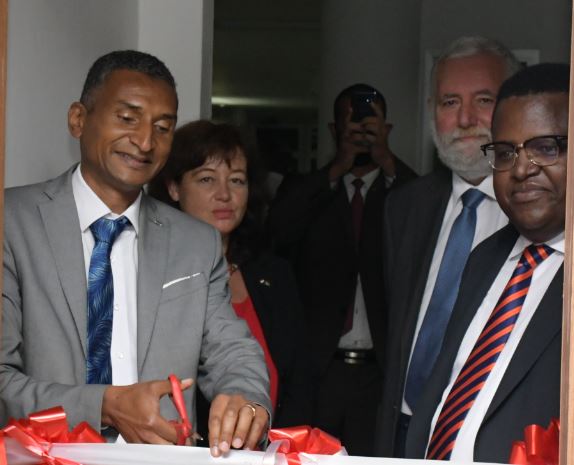×
The Standard e-Paper
Join Thousands Daily

Dr. Vincent Ogutu, Vice-Chancellor Designate-Strathmore University cuts ribon (PHOTO: Courtesy)
NAIROBI, KENYA: The government has challenged businesses and corporations to develop and in-still measures in curbing cyber threats.







